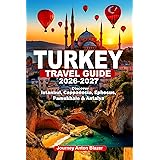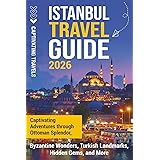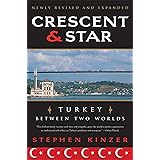by Prof. Dr. Süleyman Kızıltoprak

On the 100th anniversary of the Ottoman withdrawal from the unfortunate continent! Black continent Africa has become the current exploitation lands of ‘civilized’ and ‘developed’ states in today’s global world. Although various international organizations strive for Africa , the region is suffering from epidemics, wars, and hunger… While this situation hurts humanity at some point, it whets the appetite of global powers. When we look back from the ‘modern’ global era, we see that it was the Ottoman Empire that extended the hand of civilization to this place.

Image: African slave whose hand was cut off for collecting few sponges
So what did the Ottomans do here, what happened next? The Ottoman Empire ‘s relationship with African countries began in the process of the destruction of the Andalusian civilization in the Iberian peninsula. The Spanish capture of Mersâ el-Kebir, Vehrân (Oran) and Bicaye on the Algerian side was also threatening the interests of the Ottoman Empire in the Mediterranean. The Ottomans’ arrival in Africa took place in the 16th century, and the first step was in Egypt. With the capture of Egypt in 1517, the Mamluk period there ended. Turkish sailors Oruç, Hızır (Barbaros) and İshak brothers took Algeria from the Spanish in 1516 and brought it under Ottoman rule.
This was also the continuation of Muslim rule since the 7th century but threatened by Spanish attacks. With the admission of Barbaros to the Ottoman service, Algeria came under Ottoman rule in 1520, then Tunisia in 1534 and Tripoli in 1551 . Thus began a new era in the history of North Africa. North Africa from the beginning of the 8th century until 1830 and in a sense to the present day.became part of Asia and the eastern Mediterranean in Muslim life and thought under Arab, Berber, and Turkish rule. The medieval universities of Fez and Samarkand were basically like the universities of Oxford and Paris, despite the distance of two thousand miles between them. The main reason for the Ottoman Empire to seize Egypt was to provide the protection of Jeddah, Mecca and Medina, which were unsuccessful against the Portuguese attacks.
This development led the Ottomans to control the sea routes in the Mediterranean and to conquer other North African countries. The Egyptian Campaign had important consequences for West Asia and North Africa. Incorporating the holy cities of Islam, Mecca and Medina, within its borders gave the Ottoman Empire the prestige of being the leader of the Islamic world. At the same time, the settlement of the Ottoman Empire in Iraq and Egypt became the owner of a line that had an extremely strategic importance for the world, such as the Indian road. Having conquered Iraq, the Ottoman Empire had another strategic advantage by owning the Basra Port.
This situation; In the face of the Portuguese threat, he had caused the Ottomans to organize naval expeditions to the Red Sea to ensure the safety of the Indian road, upon calls from India. The Mamluk Sultanate, which had previously dominated Egypt, failed to respond to calls for assistance in preventing the threat posed by the Portuguese, who were trying to circumnavigate the Cape of Good Hope and seize the way to India, in East Africa and the Red Sea. As a result, the Ottomans were unable to prevent Europeans from entering Asia, but had settled in East Africa (today’s Sudan and Ethiopian coasts, Somalia, Eritrea, and Djibouti). The Ottoman presence in Africa gained strength with its dominance in Egypt.

Image: Slaves kidnapped from Africa by Western colonialists with inhumane practices
In the face of the threat posed by the Europeans’ arrival in India by sailing through the Cape of Good Hope; The Ottomans began to struggle with these powers both in the ocean and in the African continent. For this reason, during the reign of Suleiman the Magnificent, Abyssinia was conquered during the 4th Indian Campaign and the Abyssinian State was established (1554-1560). The Ottoman activities in the Red Sea began and developed when the navy prepared for the India Campaign landed in Suakin from Suez and established an advanced naval base there. A new naval base was established in Zeyla, with full control over the Red Sea coast and Abyssinia. The issues that were plaguing the Ottoman Empire in Asia and Europe did not allow for new initiatives in these regions, which were far from the center. Ottoman African ‘South America’saved from being Ottoman; He assumed the protectorate of the Islamic world against European Christian states in the Eastern and Western Mediterranean. Thanks to the Turks, Algeria and North Africa were saved from a great disaster caused by Spain and Portugal. In the same period, the policy that Spain applied to the states it occupied in South America was a complete genocide.
If Spain had succeeded in invading North Africa, starting with Algeria, there was a strong possibility that it would have done what it did in Andalusia and South America.
In the three centuries under Ottoman rule, the future borders of the Algerian State were determined and the tradition of administration began in this period. The same is true for Tunisia and Libya.
The distant and vast Inca, Maya, and Aztec empires soon fell into the hands of the Europeans. Why did many of Africa’s weaker states trouble the European colonial powers for so long?
Because the Ottoman Empire had taken positions in North Africa and East Africa against the Portuguese and the Spaniards .
Civilization vandalism experienced in Andalusia in these regions partially prevented and did not allow the human slaughter and cultural and religious defeat. The Ottomans took action to protect the Islamic peoples and civilization in Africa. In Europe, on the other hand, he established a civilization himself. He rebuilt cities and brought the justice and education system to Europe. The African and Arabian Peninsula policy of the Ottoman Empire in the 16th century was not just to secure its southern borders. More important than that was the safety of the Holy Cities, namely Mecca-i Mükerreme and Medina-i Münevvere, and the Muslims living in the aforementioned geography.
It was also to preserve the cultural, social and architectural values that enriched the Islamic civilization that flourished in Timbuktu, Kairouan and Cairo. For example, Maluf music. This type of music was born in Baghdad during the Umayyads and developed in Spain, where Andalusia was dominated by the Umayyads. When the Crusader attacks in the West were successful, the Andalusian Civilization did not come to an end with all its elements, when the mass, most of which was originally from Spain but later became Arabized and Islamized, left Spain as a result of a religious cleansing and genocidal movement. It found a new habitat in North Africa. Maluf music also moved to Morocco, Tunisia, Algeria and Libya at this time. He entered into a new exchange with Ottoman music. The music that we call Turkish art music in this geography today is known as Maluf in Tunisia, Gırnati and Morocco in Algeria.It is known as ta ala or Andalusian. Many works are performed jointly.It could not be expected that the Ottoman Empire would allow the Portuguese and Spanish to divide the world among themselves and to colonize the Mediterranean and Red Sea coasts.
The Ottomans listened to the voices of those who said “help/help”. The Ottoman Empire did not try to seize the states and emirates that were able to govern themselves and were not weak in the face of any threat. Moroccans were able to live without the help of the Ottoman Empire ; Likewise, Zanzibar, Harar Emirate and Darfur Sultanate… But these last two were attached to the Ottoman Empire when needed. But all of them were dependent on the Ottoman Empire as a caliphate. Although the Ottoman Moroccan Sultan claimed the caliphate, he also established relations with Morocco.
He avoided getting into a you-me fight with Morocco against the European powers. There was no need for the Ottomans after Uganda . All of the African geography was where the Ottomans could not go naturally. More precisely, they were places where he could not go naturally and where he was not needed. For example, the Harar emirate, which is dominant in parts of today’s Somalia, Ethiopia and Kenya… The Sultanate of Zenzibar had been strengthened since the beginning of the 18th century with the split of the Sultanate of Oman. It was an active state until the British colonists came and started operating. Until the 1880s, it was a state that spread from Dar es Salaam to Uganda .
The Ottomans also went as far as Uganda, but stopped there. Because the Ottomans were not needed here. When he was needed in Africa in the late 19th century, he could not support him enough and he could not afford it.
In order to contribute to the culture and civilization of the region, he especially supported commercial and mystical movements. But on the other hand, a common consciousness against colonial attacks was developing here. Therefore, many national liberation struggles in Africa contain religious and mystical characters.
There are also contradictory claims in Western-oriented sources, we see a lot of literature describing the Ottoman period as a dark period. But these claims are not true. Some accusations that the period of Turkish domination in North Africa caused the backwardness, that it was a period of tyranny, and that the Turks generally did not have the thought of developing the places they ruled; It shows that Ottoman archival sources have not been adequately studied or that the subject has been approached purposefully.
Because, if the French system, which is based on racism and imposes its own culture, is compared with the Ottoman system, which helps the development of local cultures and gives administrative autonomy to the regions under its rule, more objective evaluations will be made about the Turkish period. Unfortunately, today neither those living in this geography nor those living in Turkey are fully aware of the Ottoman heritage in Africa. However, there is much in common from music to literature, historical records and archival documents. There is a very limited number of academic works, but academic collaborations are very few.
The history of Africa and African countries cannot be written without using Ottoman documents and resources. But it was written… And the Ottoman centuries were either ignored or accused of lost centuries by western and local historians. Those who write in fairness are left on the sidelines… From now on, academic research in Turkey should be quickly translated into Arabic and French with various support projects. Joint scientific meetings, exhibitions, cultural activities should be held.
When the neocolonial movement began in the 19th century, the Ottoman Empire showed several weaknesses in defending its European lands against the armies of Russia and Austria and faced dramatic defeats. In this respect, it was insufficient to prevent the aggressive and expansionist policies of European states in Africa. It could not respond as desired to the Italian and British attacks, especially the French colonialism, targeting the lands under its sovereignty in North Africa. Public support was provided in newspapers such as al-Cevâib for the success of local resistance movements. After the Italian occupation of Tripoli, officers were secretly sent to the region to organize the people and support the Senusi movement. Balkan wars’Until now, the Ottoman Empire had tried to maintain its interest in the region by using various channels. Ottoman officers tried to organize the local population against the western imperial powers, as was the case in Libya.
Western colonialism has committed very cruel practices against human rights in Africa. The photo of a 5-year-old girl whose hands and feet were cut from a cross because she could not collect enough rubber in the region called Belgian Africa is still in the minds. People who were unjustly executed due to the Danşüwayy Incident in Egypt in 1907, and Cromer, who was the British Consul in Egypt but acted as a de facto governor, boasted of abolishing the punishment of falaka and whipping after the invasion. But he applied these punishments unjustly to all the villagers. These two events dealt a great blow to Belgian and British colonialism.
The colonial methods of the French are already a history full of cruelty in Algeria, Tunisia, West Africa , where torture and massacres are widely used. As for today, the atrocities continue to some extent. But the actors on stage are different. Unfortunately, the scenarios written by foreign powers are played and implemented by local actors.
@suleymankzltprk
http://www.tarafsizhaber.com/makale/Prof-Dr-Suleyman-Kiziltoprak-osmanli-afrika-da-ne-yapti-12536






















